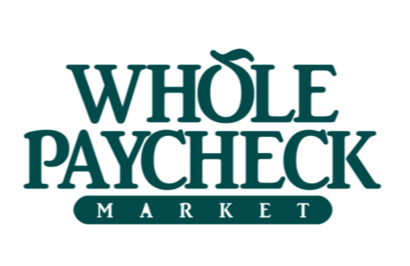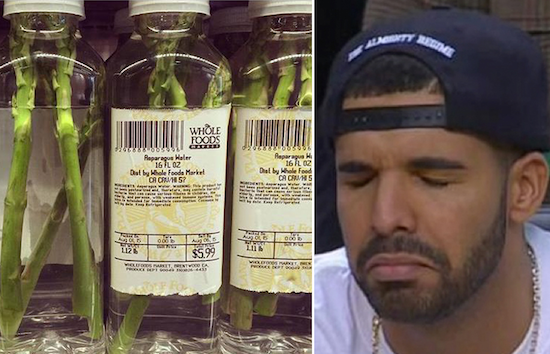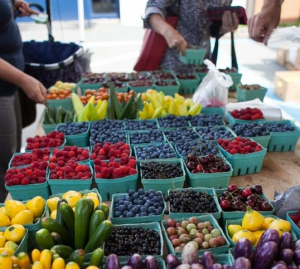As the adage goes: we are what we eat. And in this Information Age that we currently live in, there’s not a lot of excuses for putting foods into our body that don’t offer any nutritional value and are loaded with pesticides and chemicals.
(source: firstwefeast.com)
One of the biggest obstacles to healthy eating is finding sources of clean and sustainably produced foods at a price that’s friendly to your family’s budget. There’s a reason the Whole Foods has been dubbed “Whole Paycheck”. When grocery stores are attempting to sell you things like Asparagus Water at $6 a bottle, it’s time to re-evaluate who’s in control of the food production and what they’re motives are.
Contrary to the myth that you have to be wealthy to eat organic, it is in fact possible to eat the healthiest foods at prices that won’t make your stomach churn.
 (source: geneticliteracyproject.org)
(source: geneticliteracyproject.org)
Here are five ways to do so:
1. Farmer’s markets
(source: Pinterest)
Farmer’s markets are more common than ever now and can be a fantastic source of locally sourced organic fruits and vegetables. They can also be a great source for other foods such as honey, bread, and jams. Do some research and branch out to the different farmer’s markets in your area. You’ll start getting a sense of which market has the best products available at the lowest prices and can make a plan for your diet accordingly.
2. Local farmers and ranchers
Next time you’re out shopping at the farmer’s market, strike up a conversation with some of the food producers there and see what they offer outside of the market. You may find that they have other products available or that they can offer better prices if you connect and buy from them directly. Some of them may ever have delivery services so that you can skip the farmer’s market altogether and get fresh, organic foods delivered right to your front door.
There may also be local farmers and ranchers in your area who don’t participate in the farmer’s markets but would be happy to sell to you directly. Find the farms in your city and make it a point to connect with them.
3. Local fisherman
(source: Pinterest)
Wild-caught fish are a superb source of healthy protein. If you live near the coastline, you can do your research to find which of the local fish markets offers the best, most fresh product at a price you’re looking for. You can also go directly to the docks and see if you can connect with the fishing boats that are going in and out. You may be able to strike up a consistent hook-up on fresh Ahi Tuna or Mahi Mahi! The same goes for fish such as wild trout, bass, and catfish for those who don’t live near the ocean.
4. Catch it yourself
While not everyone is into fishing and hunting, they can actually be a great way of supplementing your diet with organic proteins. Wild game such as deer and elk are some of the healthiest, most tasty meats you’ll come across. And even if hunting isn’t your thing, you don’t have to be a hunter to enjoy them. Get in touch with your local big-game processors and see what they have available for purchase.
5. Grow it yourself
(source: Pinterest)
Growing a garden is one of the most enjoyable and rewarding ways to source your organic fruits and vegetables. While you can take gardening as big and far as you want, it can also be done on a small scale in a home with no yard. Whatever type of living arrangement you have, look for whatever opportunities you can find to grow and raise your own food. This could be as simple as having basil, rosemary, and chives growing in your kitchen.







